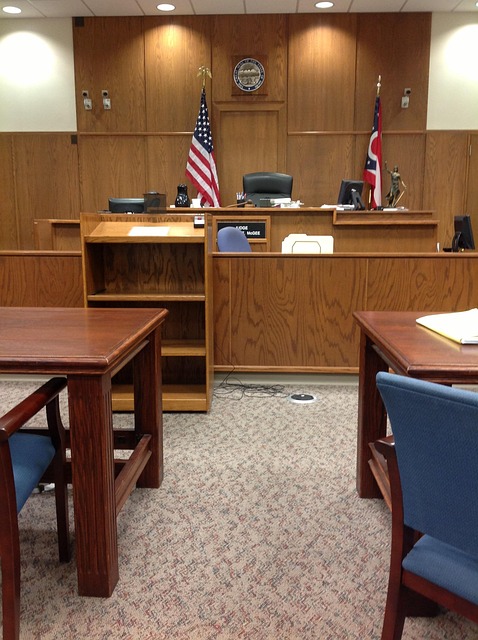The Impact of Financial Services Regulation on Litigation is significant, as global regulations aim to protect consumers, maintain stability, and prevent fraud, money laundering, and unfair practices. These rules heavily influence litigation outcomes, with non-compliance leading to severe legal consequences for businesses. Compliance issues have become high-stakes challenges in financial services disputes, demanding meticulous attention from legal professionals. Staying current with evolving regulations, such as AML and KYC protocols, is crucial to avoid reputational damage and fines. Businesses must adopt a multi-faceted strategy including educational training, regular audits, and integrated compliance practices to minimize the impact of regulation on litigation and prevent white-collar crimes.
In the dynamic landscape of financial services, regulatory compliance is not just a legal requirement but a cornerstone of stability and trust. The global nature of these regulations significantly influences litigation, presenting both challenges and opportunities. This article explores the intricate relationship between financial service regulation and litigation, delving into key compliance issues, common pitfalls to avoid, and effective strategies for navigating this complex environment. Understanding the impact of global regulatory trends is crucial for professionals aiming to mitigate risks and thrive in today’s legal and financial climate.
- Understanding Financial Services Regulation: A Global Perspective
- The Direct Impact on Litigation: Challenges and Opportunities
- Key Compliance Issues and Common Pitfalls to Avoid
- Strategies for Effective Regulatory Compliance in Financial Services
Understanding Financial Services Regulation: A Global Perspective

The financial services industry is heavily regulated to ensure stability, protect consumers, and mitigate risks. These regulations vary globally but share common goals, such as preventing fraud, money laundering, and ensuring fair practices. Understanding this complex web of rules is essential for businesses operating in this sector, particularly when navigating the impact of Financial Services Regulation on Litigation. Every transaction, from lending to investment advice, must adhere to stringent guidelines, which can significantly influence legal outcomes.
Regulatory compliance goes beyond mere adherence; it shapes investigative and enforcement processes. In cases of non-compliance or suspected misconduct, regulators and law enforcement agencies collaborate at all stages of the process, from initial complaints to trials. This collaboration ensures that evidence is gathered systematically and that businesses are held accountable for any general criminal defense violations through the respective business’s operations. The outcome can be substantial, affecting not just the financial health but also the reputation of the entity in question.
The Direct Impact on Litigation: Challenges and Opportunities

The impact of financial services regulation on litigation is profound, presenting both challenges and opportunities for legal professionals. As regulatory frameworks become increasingly complex, compliance issues have emerged as a key area of focus in high-stakes cases. The intricate nature of these regulations demands meticulous attention to detail, as even minor deviations can lead to significant consequences, including costly settlements or severe penalties.
This heightened scrutiny has undoubtedly elevated the stakes in legal proceedings, particularly in jury trials. However, it also offers an opportunity for law firms and attorneys to demonstrate their expertise. By navigating these complex regulatory landscapes, they can achieve extraordinary results, providing robust defenses and strategic guidance that reflects a deep understanding of both legal and regulatory matters. This specialized knowledge is especially valuable in financial services disputes, where the lines between compliance and litigation are often blurred.
Key Compliance Issues and Common Pitfalls to Avoid

The impact of financial services regulation on litigation cannot be overstated. One of the key compliance issues that businesses face is navigating complex regulatory frameworks, which often require rigorous documentation and reporting standards. Non-compliance can lead to significant legal repercussions, including hefty fines and damage to reputational integrity. For instance, failures in anti-money laundering (AML) protocols or know-your-customer (KYC) procedures have resulted in high-profile cases, highlighting the importance of robust internal controls.
Another common pitfall to avoid is the lack of awareness about evolving regulations. Financial institutions must stay abreast of changes implemented by regulatory bodies across the country, especially those pertaining to consumer protection and data privacy. Moreover, addressing white collar and economic crimes has become a paramount concern, with regulators increasingly focusing on preventative measures. Businesses should implement comprehensive training programs and risk assessment strategies to mitigate these risks effectively.
Strategies for Effective Regulatory Compliance in Financial Services

The financial services industry is a complex landscape where regulatory compliance is paramount to navigating legal pitfalls and ensuring stability. Effective strategies for adherence involve a multifaceted approach. First, staying abreast of evolving regulations through dedicated resources and industry publications is vital. This proactive measure allows firms to anticipate changes in advance, facilitating seamless transitions and minimizing the impact of Financial Services Regulation on litigation.
Additionally, cultivating a culture of compliance within the organization is key. Training programs that educate employees on regulatory requirements and their corresponding implications can empower them to make informed decisions. Regular audits and internal reviews further strengthen this process, enabling the identification and rectification of potential non-compliance issues before they escalate into significant problems. By integrating these practices, financial institutions can achieve extraordinary results in maintaining regulatory adherence, thereby safeguarding their operations from the complexities of white-collar and economic crimes.
The regulation of financial services has a profound impact on litigation, presenting both challenges and opportunities. By understanding global perspectives and adopting effective strategies, organizations can navigate key compliance issues and common pitfalls. This enables them to mitigate risks, enhance transparency, and foster trust in the financial sector, ultimately strengthening their legal positions and fostering a more robust market environment. The direct effect of these regulatory changes on litigation underscores the importance of proactive compliance measures for long-term success.






